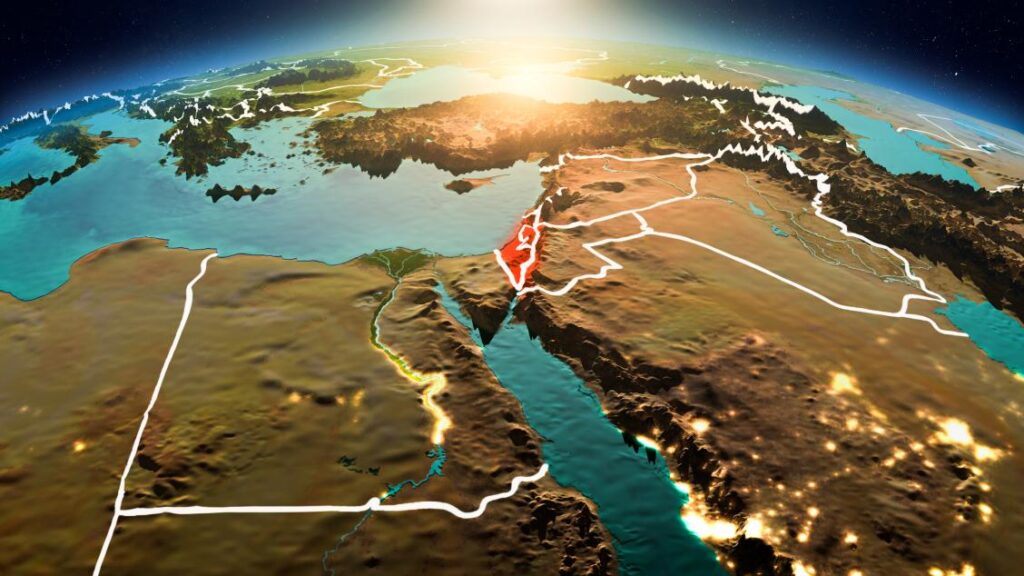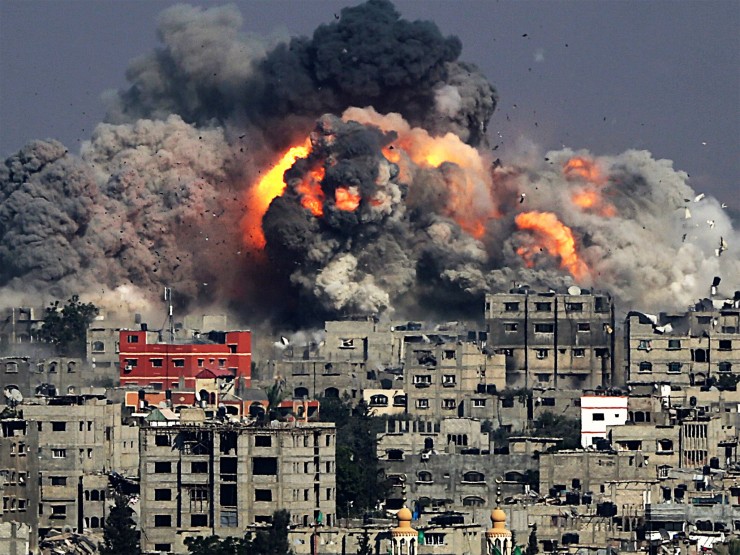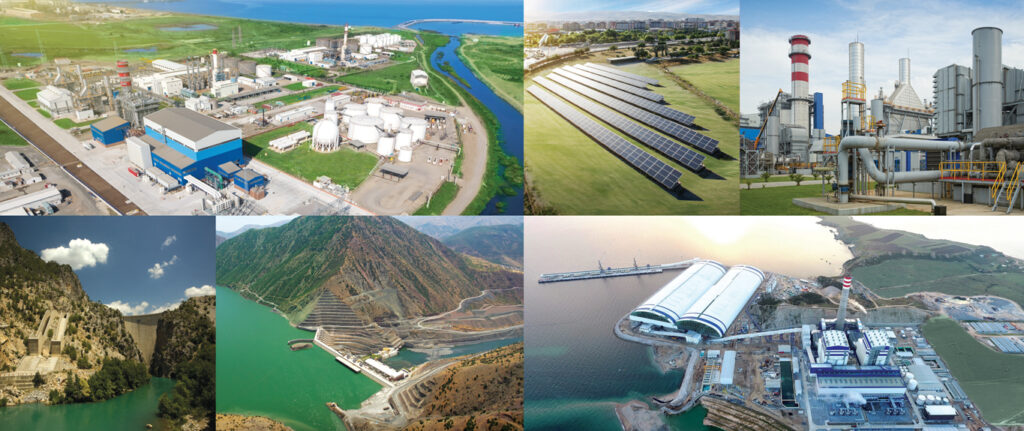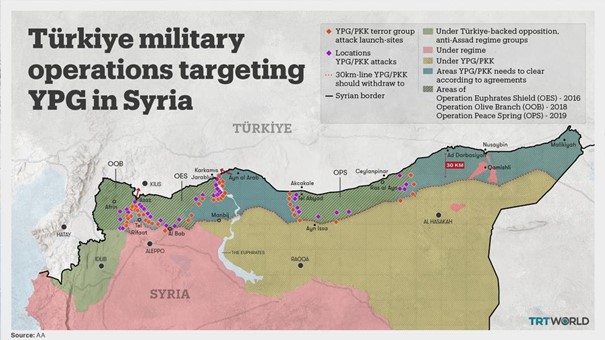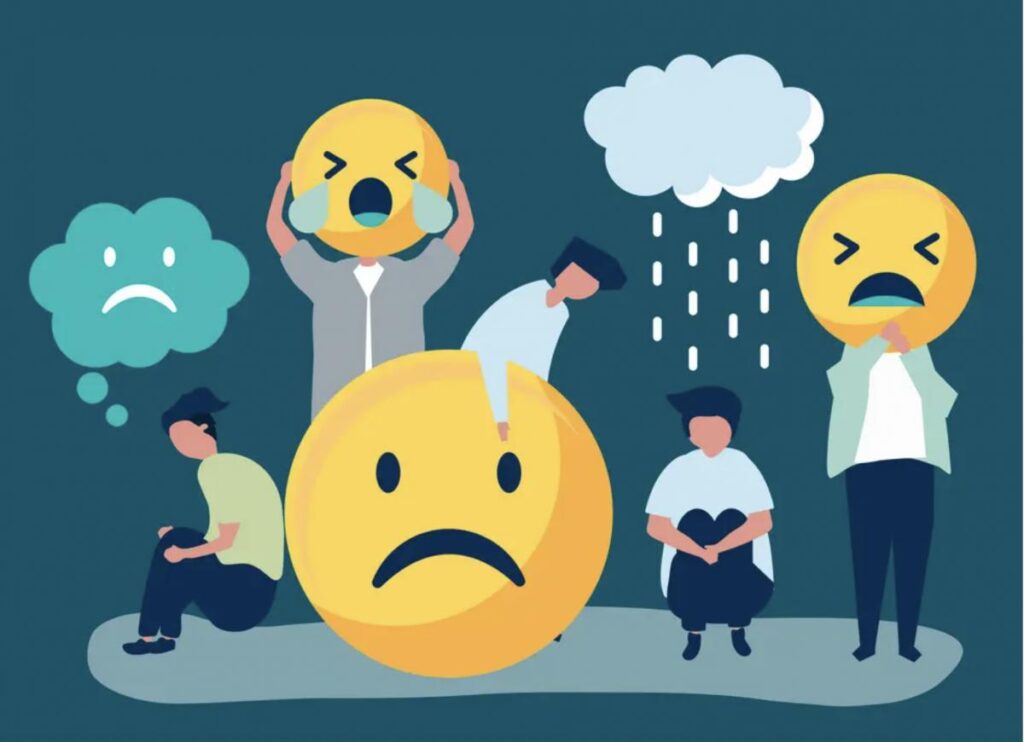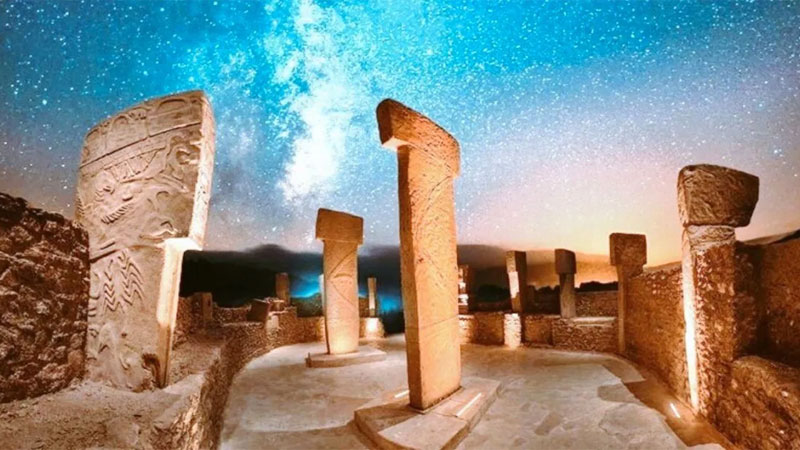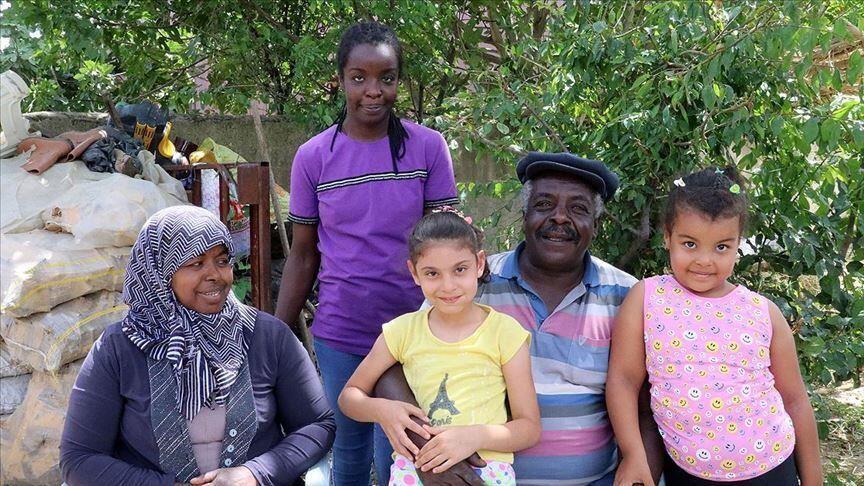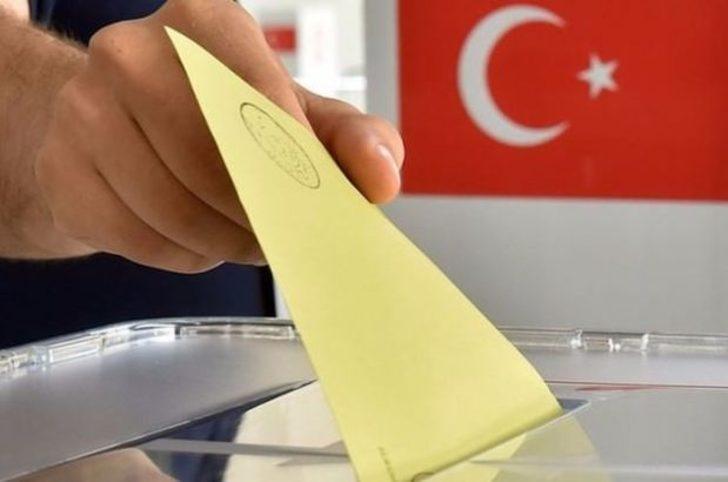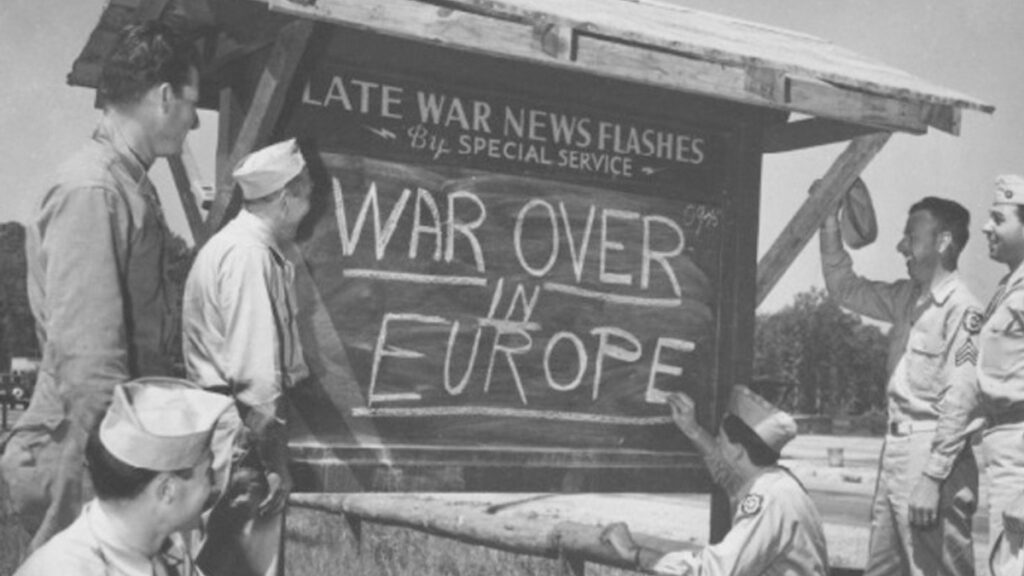“Islamophobia: Europe’s Deep Wound”

“Islamophobia: Europe’s Deep Wound- Overcoming the Prejudices of Islam”
By N.Selin Senocak
ANATOLIA REPORT
March 2022
Download PDF
INTRODUCTION
In recent years, the European Union (EU) has been promoting cultural diplomacy, framed in terms of dialogue between civilisations/cultures, and has aimed to exploit its role in the conduct of foreign policy.
In 2016, the former EU’s High Representative for Foreign Affairs and Security Policy, Federica Mogherini, has urged caution, emphasising the importance of cultural diplomacy:
“Investing in cultural diplomacy could help strengthening the economy of your region, but especially creating bridges, letting others know us and knowing others reciprocally, establishing bonds among people especially during these hard times, to prevent fears and radicalisation both in Europe and abroad. This is why we have worked so hard to the first European strategy for cultural diplomacy.”[1]
We can note that cultural diplomacy is considered as a means of creating cultural reciprocity and preventing radicalisation. Many academic reports, research studies and polls present an alarming picture about the danger of the growth of radicalism in Europe. According to the European Commission Communication published in 2005[2], “the majority of the terrorist suspects implicated in those attacks were European citizens, born and raised in Member States, who were radicalised and turned against their fellow citizens to commit atrocities. The prevention of radicalisation is a key part of the fight against terrorism, as was highlighted in the European Agenda on Security.” [3] The terrorist attacks that Europe has faced in recent years have not been caused by foreign terrorists, but by European terrorists who are considered “the enemy within”[4]. “Those involved are born or bred in Europe and the majority of these individuals appeared to be integrated in their Western societies.”[5] They speak European languages, are Western-educated, and many have citizenship of a European country[6].
Recent terrorist attacks in Europe have been claimed by Daesh and Al-Qaeda under the pretext of jihad in the name of Islam, which has marginalised Muslims worldwide[7]. An automatic association of ideas imputes terrorism to Islam. Olivier Roy, one of Europe’s distinguished scholars of Islam and extremism, argues: “The world is confronted to the Islamisation of radicalism instead of the radicalisation of Islam.”[8] While radicalisation as a whole is still not well understood, it is argued that violent extremism is, at root, a social and political phenomenon, rather than an intrinsically religious one[9].
The European Council adopted the Declaration on Combating Terrorism and created a European “Counterterrorism Coordinator” (CTC)[10]. The declaration set out seven strategic objectives. Measures identified as falling therein included: the identification of factors which contribute to recruitment to terrorism; investigating the links between extreme religious or political beliefs, as well as socio-economic and other factors, and support of terrorism; and developing and implementing a strategy with which to promote cross-cultural and interreligious understanding between Europe and the Islamic world[11]. A significant step forward in the EU’s counterterrorism strategy is that of considering cross-cultural/interreligious understanding to be a key component; it is also important to integrate this approach in the EU’s cultural diplomacy strategy[12].
“The 9/11 terrorist attacks drastically changed public opinion towards Muslims. Since then, terrorist acts such as the attacks by violent jihadists in London and Madrid, the murder of Dutch filmmaker Theo van Gogh, and the massacre at the Charlie Hebdo offices in Paris have increased fear and anxiety. The use of Islam by extremists to justify their terrorist acts has made many Europeans regard Islam as a threat and fear Muslims as the enemy.”[13] Islamic values have been the subject of many debates surrounding their compatibility with “Western values”. The socio-political rejection of Muslims has been transformed into Islamophobia. Islamophobia in Europe manifests itself in irrational hostility, fear, or hatred towards Islam, Muslims, and Islamic culture, as well as active discrimination against the groups or individuals therein.[14] There is a long history in European culture of portraying Muslims as barbaric and intolerant[15].
Pierre Conesa argues that: “The artificial production of an imaginary enemy ends up creating a real enemy”[16]. The portrayal of Islam and Muslims in the media is often detrimental and unrepresentative, relying on prejudice[17]. Nowadays, numerous media campaigns are going on against Islam and Muslims. Most Western media with considerable financial resources and multiple channels try to show a rough picture of Islam to their public.[18]
Many reports have highlighted the disadvantaged position of Muslim minorities, evidence of a rise in manifestations of Islamophobia[19], and concerns about alienation and radicalisation, which have triggered a debate in the EU surrounding the need to re-examine cohesion intercommunity and integration measures. Muslim immigrants in Europe face discrimination and intolerance due to their religious and cultural identities. Former Commissioner for Human Rights of the Council of Europe Thomas Hammarberg has underlined the danger of Islamophobia as follow:
“European countries appear to face another crisis beyond budget deficits – the disintegration of human values. One symptom is the increasing expression of intolerance towards Muslims. Opinion polls in several European countries reflect fear, suspicion and negative opinions of Muslims and Islamic culture. These Islamophobic prejudices are combined with racist attitudes – directed not least against people originating from Turkey, Arab countries and South Asia. Muslims with this background are discriminated [against] in the labour market and the education system in a number of European countries.”[20]
The European Commission against Racism and Intolerance Council of Europe (ECRI)[21] has published two policy recommendations: General Policy Recommendation No. 5 on the fight against intolerance and discrimination against Muslims (CRI (2000) 21) and Policy Recommendation No. 7 on the national combating of racism and racial discrimination (CRI (2003) 8). In addition, General Recommendation No. 8, which combats racism and terrorism (ECRI (2004) 26), notes: “As a result of the fight against Terrorism launched since the events of 11 September 2001, some Groups, including Arabs, Jews, Muslims, Asylum seekers, political refugees and immigrants, certain minorities and Persons considered to belong to such groups, have become particularly vulnerable to racism and / or racial discrimination in many areas of public life, including education, employment, housing, access to Goods and services, access to public places and freedom of movement.”[22]
A deep cultural comprehension of European Muslims is needed to have a better understanding of their uneasiness and worries. European Muslims are constituted by different ethnic groups, religious affiliations (Sunni, Shiite, Alevi and Sufis), philosophical beliefs, political convictions, secular trends, languages, and cultural traditions. Islam constitutes the second religious group in the European society of multiple beliefs[23]. Many Muslim communities in Western Europe have their origins in European labour shortages and immigration policies of the 1950s and 1960s. Varying colonial legacies and historical ties have resulted in different European countries attracting certain nationalities[24]. In the European context, one of the most important issues concerns whether Islam is compatible with the European value system and whether Muslims are well integrated into European societies or some of them suffer from social exclusion and alienation. The EU’s cultural identity and values can create social exclusion and identity crises within Muslim minorities in Europe who are culturally perceived as the “others”. The social exclusion of Muslims in Europe is undeniably linked to the identity crises which have rendered European Muslims vulnerable to Islamist radicalisation and indoctrination.
As mentioned in Amnesty International’s report, “in the last decade or so some stereotypical views on Muslims have been voiced by some political leaders and have been reflected in public opinion polls across Europe”. In this discourse, the establishment of Muslim places of worship and the wearing of religious and cultural symbols and dress are seen to illustrate “unwillingness by Muslims to integrate” or an intention to “impose values at odds with European identity”[25].
From this perspective, in order to figure out the cultural misunderstanding, the reasons for radicalisation of young European Muslims, and to establish a constructive integration approach, we will try to answer the following questions briefly: Are European values such as freedom, democracy and human rights compatible with Islamic values and law? What resources are there in Muslim theologies to combat violence in the name of religion? How can Muslims integrate in European secular democracy? How can culture-based public diplomacy prevent radicalism and integrate Muslim minorities in a participative European cultural citizenship approach?
This paper consists of three sections. Rather than concentrating on differences, we will try to focus on issues of commonality by identifying shared values and principles between Islam and Western values.
The first section outlines definitions of the basic/core principles of Islamic values and figures out the controversial Islamic terminology. We decided to study the most controversial Islamic terminology as the source of terrorism and ideology of radical Islam against Western value system such as the dar al-islam and dar al-harb dichotomy, takvir and jihad. We based our study on the Quran and objective interpretation of Islamic terminology by the most distinguished Muslim scholars. The second section introduces ‘briefly’ two distinctive core values of Islam such as freedom and equality their explanation and representation within Quran and the Universal Human Rights Declaration. As a theoretical approach the final section explores radicalisation reasons of young European Muslims and the modus operandi and best practices for cultural integration of the Muslim community in the European secular system
I – The Islamic Axiology and Controversial Islamic Terminology
According to Pew’s research, Europeans perceive Islam to be a threat to European culture and civilisation[26]. Ipsos’ poll drew a similar conclusion, underlining that Islam is the subject of deep rejection in France: “74% of respondents believe that Islam is not compatible with republican values, 8 out of 10 French people think that the Muslim religion seeks to impose its mode of functioning on others’ and that for 54% of respondents, Muslims are fundamentalists.”[27] Muslims in Europe are often considered an unintegrated minority with different socio-cultural values and their belief system is entirely opposed to the Western value system.[28]
In Europe, the deployment of Islamophobia as a primary political campaign has been a major strategy of far-right political parties, such as the Party for Freedom (PVV) in the Netherlands. Its leader, Geert Wilders, claims to defend the democratic, individual and Universalist values of Western Europe against Islam[29]. “These parties have instrumentalized public sentiments of anxiety and disenchantment and have contributed to Islam being identified as the ‘most significant enemy’ by promoting ideologies of ethnic nationalism and notions of a ‘clash of civilizations’ in warning against the ‘Islamization’ of Europe. Their political platforms are aimed at halting immigration, establishing mandatory integration criteria for migrants and reducing the influence of Islam.”[30] The proponents of Islamophobia consider Islam not as a religion but as an ideology to which they attribute all of the features of totalitarianism and barbarism. The German Islam expert, Bassam Tibi emphasises the division in terms of Islam and Islamism. He explains Islam as a faith, culture, and source of ethics, with Islamism being a mobilising religious ideology, represented by a transnational movement that not only engages in a new form of irregular warfare but also, in other contexts, cynically plays and manipulates the game of democracy[31].
Furthermore, Islamophobes and fundamentalists are relying in particular on a tendentious interpretation of Islamic terminology, such as the dar al-islam–dar al-harb dichotomy, sharia, takvir and jihad as the sources of terrorism and ideology of radical Islam against the Western value system. A value is a moral preference of a group of subjects. Reflection upon values is deemed ‘axiological’ and is organised around the terms ‘good’ and ‘bad’[32]. The tendency to judge others’ behaviour based on our own cultural norms is the principal reason for cultural misunderstanding and may constitute an obstacle to cultural diplomacy.
“The religion of Islam was established fifteen centuries ago, with the revelation of the Qur’an to Prophet Muhammad. First and foremost, Islam consists of a faith in God (iman), and is a call to cultivate moral excellence (ihsan) in one’s attitudes and actions. It is a comprehensive vision of how to lead a good life, that emphasises spiritual and moral values, social obligation to others, and individual responsibility.”[33]
The term “Islam”, which in essence means “conscious and active adherence to peace”, describes a universal religious attitude[34]. The Quran recognises the existence of different religions, and divinely ordains diversity in all of its forms, be it religious, ethnic or linguistic. The Islamic doctrine of pluralism stems from a logical principle: since in Islam only God is Unique and One, all others except Him, that is, His creation, are projected into multiplicity[35]. The Quran thus proposes a vision of living together based on respect for difference:
“And if your Lord had willed, He could have made mankind one community; but they will not cease to differ, except those to whom your Lord has mercy. Except whom your Lord has given mercy, and for that He created them.”[36] “And of His signs are the creation of the heavens and the earth and the diversity of your languages and your colors. Indeed in that are signs for those of knowledge.”[37] “We have believed in Allah and what has been revealed to us and what has been revealed to Abraham and Ishmael and Isaac and Jacob and the Descendants and what was given to Moses and Jesus and what was given to the prophets from their Lord. We make no distinction between any of them, and we are Muslims [in submission] to Him.”[38]
Unexpectedly for some, the Quran is the only scripture that establishes the universalism of revelation and interreligious diversity. Being Muslim implies recognising the authenticity of all of the religions revealed before Islam. “Pluralism in this sense means that Muslims are required to accept the other faiths and beliefs systems and their followers as equally respected in our pluralistic society. In practice, this means that Muslim should treat non-Muslim individuals as equal in the domain of social interaction, regardless of religious or doctrinal disagreements.”[39]
In this context, ‘takfir’ refers to the pronouncement that someone is an unbeliever (kafir) and no longer Muslim. Takfir is used in the modern era for sanctioning violence against leaders of Islamic states who are deemed insufficiently religious[40]. Quranic messages have expressed clearly the pacifist attitude, respect towards non-Muslims, and religious understanding: “Say, ‘O disbelievers, I do not worship what you worship. Nor are you worshippers of what I worship. Nor will I be a worshipper of what you worship. For you is your religion, and for me is my religion.’”[41]
In Islam, diversity is perceived to be a divine will. Respect for diversity is a challenge in today’s world. When it is well managed, diversity is a wealth, tantamount to a rivalry in goodness. But when it is badly managed, it can express itself in the will towards power, towards unshared power and towards violence in this world, where different traditions mingle and live together.
Another Islamic term instrumentalised by radical terrorist groups, and which has caused much ink to flow in the Western media as the main argument of Islamophobia, is Jihad. “It is used in reference to the duty of religious war against unbelievers as a sort of doctrinal crusade.”[42] “Jihad in its true sense means a positive ethical struggle: striving for social justice, fighting against poverty or making efforts to reform oneself. Islam is opposed to all forms of terrorism, regardless of who sponsors them.”[43]
According to a hadith[44] interpretation, the Prophet Muhammad said: “We have returned from the lesser jihad to the greater jihad” (i.e. the struggle against the evil of one’s soul)[45]. The greater jihad refers to “the struggle of man against his passions”. “The fighter in the way of God is the one who fights against his ego,” or “the best way to practice jihad is to fight against his ego and his passions”[46]. Another hadith interpretation states that, the “lesser jihad” concerns only the defensive struggle, that is, when Islam is attacked on its territory[47]. Following these explanations, we can deduce that the term ‘jihad’, therefore, does not mean war or physical combat. It consists in mobilising human energy, be it individual or collective, and tending it towards God, in all aspects of life.
“The radical fringe Islamist appropriation of the Dar al-Islam/ Dar al-Harb dichotomy as justification for their theology of jihad is also cited as evidence of the international embrace of Huntington’s thesis.”[48] According to Tahir Abbas, Dar al-Islam (Land of Islam) ‘Abode of Peace’ and Dar al-Harb ‘Abode of War’ both describe a metaphysical characteristic between the different worlds in which Muslims and non-Muslims exist[49]. “Land of Islam denotes a territory where there is freedom to perform public acts of worship.”[50] Dar al-Harb depends on the safety and religious freedom of Muslims in that place: if Muslims living in a non-Muslim state are not allowed to practice their religion freely and do not enjoy safety in a certain territory, then it is described as Dar al-Harb[51]. According to Muslim scholar Dr. Wahbeh al-Zuhili, there is no precise definition of Dar al-Harb and Dar al-Islam in the existing religious sources of the Quran or the Sunnah (the body of Islamic tradition based on the Prophet’s actions and sayings)[52].
Contemporary jihadism constitutes a denial of the true meaning of jihad. Mohammed Alyahya argues that the violent, deviated concept of jihadism is the invention of Wahhabism/Salafism, which is deemed responsible for the radicalisation of Muslims around the world[53]. This abscess is certainly born from a Muslim country of a postcolonial civilisational malaise, but, with globalisation and media coverage, it is now exhibited as a nihilistic ideology under the cover of religion.
II – Islamic Values and Human Rights Principles
There was a movement in the Muslim world in the 1950s and 1960s to develop Islamic conceptions of human rights. In the 1980s, Muslim scholars worked out a statement of an Islamic conception of human rights under the Muslim Council of Europe. In many respects, these are similar to the European Convention on Human Rights.[54] There is a willingness to reconcile human rights with Islamic principles and to identify Quranic verses that support most articles of the Universal Declaration of Human Rights. We will try to expose briefly some key concepts, such as sharia, freedom, equality, and gender equality.
According to Oxford Islamic Studies, “Sharia is God’s eternal and immutable will for humanity, as expressed in the Quran and Muhammad ‘s example (Sunnah), considered binding for all believers; ideal Islamic law. The Quran contains only about ninety verses directly and specifically addressing questions of law. Islamic legal discourse refers to these verses as God’s law and incorporates them into legal codes. The remainder of Islamic law is the result of jurisprudence (fiqh), human efforts to codify Islamic norms in practical terms and legislate for cases not specifically dealt with in the Quran and Sunnah”. Modern scholars have challenged this claim, distinguishing between sharia and fiqh and calling for reform of fiqh codes in light of modern conditions”[55].
The recourse to Sharia is often confused with Islamic law, whereas it is simply the codification by man of the sacred text, carried out according to the interpretations of jurisconsults and the schools they claim[56]. Sharia is, in summary, the normative form of the association of the Qur’an and the words of the Prophet by religious scholars, according to their specific interpretations and not always independent of temporal power. Thus, the recurrent controversies in the West, and even in Muslim countries, surround certain questions according to the imperatives of the moment: adultery, wearing the veil, fasting in the month of Ramadan, abortion, etc.[57]
“In fact, there is a great deal in common between human rights declarations and the underlying objectives of the Sharia (maqasid al-Sharia), which seek to establish dignity, equity and justice for all. Islam forbids abuses and crimes such as forced marriages of men and women, domestic violence, female genital mutilation and so-called ‘honour killings’, and teaches the equality of all human beings regardless of gender. The absence of a common body of Islamic laws (fiqh) for the use of all Muslim countries is proof that the Sharia is specific to each Muslim country that adopts it, according to the legal and doctrinal school with which it is connected”. [58]
Freedom and equality are the main fundamental values of the EU that constitute the Universal Declaration of Human Rights of August 26, 1789, as a right allowing man to leave the status of subject for that of a citizen. According to Article I and Article II: “All human beings are born free and equal in dignity and rights. They are endowed with reason and conscience and should act towards one another in a spirit of brotherhood. Everyone is entitled to all the rights and freedoms set forth in this Declaration, without distinction of any kind, such as race, colour, sex, language, religion, political or other opinion, national or social origin, property, birth or other status. Furthermore, no distinction shall be made on the basis of the political, jurisdictional or international status of the country or territory to which a person belongs, whether it is independent, trust, non-self-governing or under any other limitation of sovereignty.”[59]
Moreover, since belief in a single God is a recurring term in the Quran, it is always matched with the notion of freedom to be validated as a choice independent of any constraint: “And had your Lord willed, those on earth would have believed – all of them entirely. Then, [O Muhammad], would you compel the people in order that they become believers?”[60] Importance is given here to freedom of choice and, therefore, freedom to believe or not to believe. Another verse states: “For you is your religion, and for me is my religion.”[61]
Freedom is a fundamental value in Islam, as it determines all of the actions of the Muslims upon which they will have to report on the Day of Judgment, except for those carried out under duress[62]. According to the Quran, in Islamic belief, a human being is therefore completely free in the choice of his beliefs insofar as he does not try to impose his own on others. He is free in expressing his opinion and in disseminating his ideas on the condition that they do not encourage subversion or civic disobedience[63]. We can be very sceptical about such affirmations when we know the difficulty of freedom of expression in most Muslim countries and the restrictions imposed on citizens, including in the practice of worship[64].
Equality is presented as one of the fundamental values of the Quran. The Quran speaks of “equality between people” or “among humans”[65]. In Islam, equality is called ‘equity-justice’, and this term is often used in Qur’anic verses to recall the ethics contained in this important value in the sense that it goes far beyond the existing rules of law established by man, even if they conform to Quranic prescriptions[66]. Cambridge University Islamic Studies report highlights the importance of gender equality in Islam, “Equity in an Islamic context means justice and overall equality in the total rights and responsibilities of both genders. Islam teaches the equal treatment of all human beings, regardless of gender. Differences between genders in particular societies relate to culture and tradition, prescribing different social roles. Muslims have often argued that early Islam was a progressive force that improved the rights of women”[67]. In the Quran, men and women equality is expressed as follow: “Their Lord responded to them: ‘I never fail to reward any worker among you for any work you do, be you male or female – you are equal to one another.’”[68]
Nevertheless, some scholars note the contraction of Islamic values and Western values, Bogdani argues that: “Some Islamic values and norms contradict modern and Western values, such as human rights and freedoms, the role of women … ideas about the relations of religion and the state, moral codes of everyday behaviour and the boundaries of religious and moral tolerance.”[69]
As a response to these arguments, some Muslim scholars defends a different approach, “The Emphasis placed on women and gender issues in current discourse about Islam and Muslims is largely driven by the widespread perception that Islam is characteristically or even uniquely misogynist and patriarchal. Such views are rooted, to a large extent, in the ideological biases, historical prejudices, and cultural intolerance associated with “orientalist” approaches to Islam which have undoubtedly compromised Western ideals of “scientific objectivity”[70].
Indeed, we can note that in textual sources of the Quran and spiritual messages of Islam, women are equal to men, but all human interpretations which have accumulated in religious production have distorted the true meaning of Quranic messages. The sharia and fiqh, which are representing ethical codes and Islamic laws, are mostly based on the interpretation of Quranic messages. Hadiths (the collection of sayings attributed to the Prophet Mohammed) and Sunnah (the Prophetic model of behaviour) are specific to each Muslim country that adopt them, according to the legal and doctrinal school with which it is connected. “The diverse manner in which these countries apply Sharia to daily life highlights how Sharia is neither static nor rigid but instead a reflection on how different communities interpret it.”[71]
Now we are brought back to this paradox in Muslim countries in which we constantly observe that a contradiction exists between the values of Islam and the use that is made of it, be it at the level of exegesis or the deliberate denaturing of the Quranic message for political or other purposes.
In the absence of clergy in Sunni Islam, it is up to the wisest of Muslims and the most capable thereof to explain Islam. This sometimes creates a very important gap in the interpretation of Quranic verses within the supporters of an obscure and retrograde literal Islam, as represented today by fundamentalists.
Quranic verses are understood and lived differently in different parts of the world[72]. The instrumentalisation of the Quran and the tradition of the Prophet Mohammad by radical terrorist organisations urge the need to contextualise Islam and transmit its true values and messages to Muslims and non-Muslims in order to build an interreligious dialogue in Europe. Even so, Brookings Institute report underlines the confusion over the word ‘contextualisation’. “This concept of ‘contextual’ thinking generated many questions in and of itself: The purpose here was not to ‘reform Islam’ but to think of how the reform (in the sense of islah: ‘restore’, ‘renew’) of Muslims’ understanding and practice of Islam may play a role in answering some of the challenges that they face in the modern world. There are a greater number of Western-based Islamic scholars who show a willingness and ability to articulate a traditional approach to their religion that is merged with a pragmatic understanding of the unique milieu of Muslim life in the West.”[73]
As we can note, Western values such as freedom, equality, cultural diversity, pluralism and human rights also constitute the fundament of the Islamic value system. This does not mean that Muslims living within Western societies share identical traditional values to those of Western societies.[74] Nevertheless, these values can constitute the basis for a common approach to building a sustainable intercultural and interreligious understanding, and can play a major role in integrating Muslim minorities in a European secular system through culture-based public diplomacy. As stated by Rettman, “We must show that interfaces exist between Muslim societies and between universal values, which are represented by the EU, that co-existence and consensus are possible.”[75]
III – Cultural Integration of Muslims in Europe as an Antidote for Radicalism
The European Commission’s Communication on Supporting the Prevention of Radicalisation Leading to Violent Extremism mentioned that “the main threat comes from an abusive interpretation of Islam exploiting grievances abusing religious narratives and symbols providing justifications for acts of violence”[76]. The communication notes that a European strategy on violent radicalisation would include a focus on employment, social exclusion and integration issues, equal opportunities and non-discrimination, and intercultural dialogue, as well as broadcast media, the Internet, education and youth engagement. The communication goes on to argue that the failure to integrate provides “fertile ground for violent radicalisation to develop”[77].
The negative effects of unchallenged Islamophobia include low self-esteem, stress and depression, anger and frustration, confusion, a sense of powerlessness, and the provocation of reactionary attitudes and impulses, which may increase vulnerability to radicalisation and extremism[78].
According to Olivier Roy: “Two readings today dominate the scene and structure of televised debates and newspaper pages: the culturalist explanation and the third worldist explanation. The first highlights the recurring and enduring war of civilisations: the revolt of young Muslims demonstrates the extent to which Islam cannot be integrated, at least as long as a theological reform has not removed from the Quran the appeal to Jihad. The second constantly evokes postcolonial suffering, the identification of young people with the Palestinian cause, their rejection of Western interventions in the Middle East and their exclusion from a racist and Islamophobic French society; but both explanations run counter to the same problem.”[79]
As we explained in the previous section, the culturalist explanation cannot be justified. Islamic values and terminology are instrumentalised and distorted by the fundamentalists and, as underlined by the European Commission Communication, “the abusive interpretation of Islam is creating the radicalization, not Islam as a religion itself”[80].
Multiple generations of Western Muslims have considerably re-evaluated their parents’ understanding of Islam and the role it should play in one’s life. But this ‘Islam of the parents’ does not necessarily speak to the problems faced by Muslims in the West today[81].
Olivier Roy’s analysis concerning the reasons for the disintegration and radicalisation of young Muslims who reject all forms of cultural integration should be carefully studied:
“The ‘second generation’ never adhere to the Islam of their parents who do not represent a tradition that would revolt against Westernisation. They are westernised, they speak better French than their parents. All shared the ‘young’ culture of their generation, they drank alcohol, smoked shit, danced the girls in nightclubs. A large proportion of them went to prison. And then one fine morning, they (re)converted, choosing Salafist Islam, that is Islam rejecting the concept of Culture, an Islam of the norm that allows them to rebuild themselves. They do not want the culture of their parents or a ‘Western’ culture which they consider as symbol of their self-hatred. The key to revolt is first of all the lack of transmission of a culturally inserted religion. This is a problem that does not concern the ‘first generation’ that carries out the cultural Islam of the country of origin, but has not been able to transmit it.”[82]
According to Maxwell, faith and belief are not the dictating influence and element moulding young Muslims’ mindsets. Rather, the setback of integration has led to the problems associated with the identity crisis. Therefore, concentrating solely on the sector of religion is not the best way in which to categorise the Muslim population residing in Europe. The lack of integration has been an ongoing issue in France and other nations[83].
The European Union Agency for Fundamental Rights (FRA) published an interesting report on the experiences of Muslim and non-Muslim youth (aged 12-18 years) in France, Spain and the UK in relation to experiences of social marginalisation and racism and in relation to a sense of social isolation and support for and involvement in violence. The result is insightful for the comprehension of radicalisation of young Muslims in Europe:
“In all three EU Member States surveyed, young people who felt socially marginalised and those who had been a victim of violence because of their cultural or religious background, skin colour or language, were more likely to use emotional violence (such as teasing or bullying) towards others than young people who did not feel socially marginalised or those who had not been victimised for the above-mentioned reasons. Muslim youths have greater levels of concern about tolerance towards cultural identities, both at a personal and a global level, which is likely to impact on their understanding of the way in which such issues are dealt with politically. With this in mind, the results indicated that young Muslims appeared to feel more powerless to participate in legitimate forms of protest or active citizenship than young non-Muslims. (…) Acts of injustice or exclusion towards Muslim youths, in particular, may cause alienation from wider society. This may lead some young people to develop sympathy or support for the use of violence.”[84]
Theoretical and empirical literature is divided between theories of cultural integration, suggesting that migrants gradually absorb the values and lifestyles of their countries of destination, and theories of multiculturalism, which suggest that enduring traditions, shared identities, and deep rooted values have persisted for many minority groups for many decades, or even for centuries. Furthermore, migrants should be engaged in the rights and responsibilities of democratic citizenship in their host societies, even though they should be free to maintain distinct cultural identities, practices and beliefs[85].
The cultural integration process in Europe under the banner of secular extremism[86] has created social exclusion and marginalisation of Muslims in Europe, which is undeniably linked to the identity crises which have rendered European Muslims vulnerable to Islamist radicalisation and indoctrination. Marranci has also argued this problematic:
However, Muslim immigrants have to deal with a schizophrenic language and political behaviour. On the one hand, Europe asks them to become part of it, in other words to become, if not ‘fully’ Europeans, at least Muslims of Europe; in other words, Muslims that re-elaborate their cultural and religious identity to become citizens of a new Europe, which include also Islam. But, at the same time, Europe acts in a way that Muslims can only remain Muslims in Europe; in other words, aliens in a Christocentric European environment to whom tolerance might be only granted. It is Islamophobia and, in particular, what could be called institutional Islamophobia that prevents Muslims to become of Europe[87].
The European Commission published in 2004 the EU Common Basic Principles on Integration, in which the integration process is viewed by the EU as a two-way process of mutual accommodation:
“Integration is a dynamic long term and continuous two-way process of mutual accommodation, not a static outcome. It demands the participation not only of immigrants and their descendants but of every resident. The integration process involves adaptation by immigrants, both men and women, who all have rights and responsibilities in relation to their new country of residence. It also involves the receiving society, which should create opportunities for the immigrants ’full economic, social, cultural and political participation. Accordingly, Member States are encouraged to consider and involve both immigrants and national citizens in integration policy, and to communicate clearly their mutual rights and responsibilities.”[88]
Nevertheless, the two-way process of mutual accommodation is criticised as being a hidden one-way process. Hansen notes: “Once the question of ‘principles and values’ enters into the picture, the already mistaken ‘two-way process’ quickly yields to an even more disquieting one-way process where integration, in essence, becomes synonymous with an exclusive duty to adapt on part of the migrant society. This proceeds from the Commission’s appropriation of the ‘respect for human rights and human dignity’ as being constitutive of ‘our’ particular values.”[89]
The biculturalism of European citizens of foreign origin should be a valuable asset in these times of globalisation. Instead of celebrating the cultural and economic potential of immigration, welcoming the demographic acceleration is likely to bring an ageing continent, rejoicing in its contribution to the balance of social accounts. Rather than receiving gratitude, it prefers to feed frustration, their anger or that of their offspring in disregard of its well-understood interests[90].
The Eurobarometer Survey published in 2009 showed that religion-based discrimination is an important challenge for EU member states: “Discrimination based on religion/belief is seen as most widespread of all in the Netherlands (59%) and France (58%), followed by Denmark (55%), Belgium (54%), Sweden (53%) and Greece (51%). We note that these are all countries where immigration issues feature prominently in the public debate. At the other end of the scale, just 12% of Czechs and Slovakians, 13% of Latvians and 14% of Lithuanians think this type of discrimination is common in their country. These are all countries where there is relatively little religious diversity.”[91]
EUMC Report emphasises the willingness of democratic and civic engagement of European Muslims confronted to some reluctance: “Many Muslims acknowledge that they themselves also need to do more to engage with wider society in order to overcome the obstacles and difficulties that they face and to take greater responsibility for integration. However, engagement and participation need encouragement and support from mainstream society, which needs to do more to accommodate diversity and remove barriers to integration”[92].
As argued by Franz, “Radicalization has been meditated upon the problem of lack of integration within the public community. Young individuals who do not feel incorporated within the community have lost their sense of belonging and have evolved into finding new ways to where one best fits, and terrorist organizations find those men who recruit those beings who are vulnerable.”[93] Muslims living in isolated urban communities are becoming alienated from democratic societies and may be developing closer sympathies with extremist Islamic movements[94]. In this isolated milieu, Internet seems to be the most powerful and effective process of radicalisation. According to Martinez, “With technology advances, everyone has access to everything on the net. An individual can self-radicalize simply through reading and admiring leaders of terrorist groups or even making contact with recruiters who will address them; accordingly, as they see fit”.[95] Social networking sites and Islamic cyber-environments have exposed Muslims to new influences outside traditional spheres of knowledge and authority.[96]
There is clear evidence that, contrary to popular belief, the people who are attracted to violent extremism are likely to be those who do not have a good grounding in the religion, and that very religious Muslims are, in fact, most resistant to radicalisation[97].
Young Muslims who feel excluded from society through marginalisation, prejudice and discrimination seek to create a new identity through radicalisation. In this quest for vengeance and to prove their existence, terrorism seems to be for them a heroic and easily accessible means.
Many impressionable, young Muslims, whose only connection with their religion may be the desire to find some sense of moral certainty and a place in the world, are given an identity compass linked to a vision of the umma (Muslim community) within global Islam. This prompts them to see themselves as part of a wider struggle of resistance against hegemony, imperialism and godless capitalism[98].
“There are many ways in which to respond to oppression other than fighting. The struggle against injustice can take many forms, such as lobbying, demonstrating, writing and argumentation. This is part of what it means to be a good citizen; it is part of contributing to society. However, many young people lack the confidence or the skills to protest in these ways or to contribute to the decision-making process, which is an area in which more work needs to be done”[99].
The United Kingdom has launched a precursor educational programme for integrating young Muslims into active citizenship involvement: “The Islam and Citizenship Education Project” (ICE). This has been developed and coordinated by the Department for Children, Schools and Families and the Department for Communities and Local Government[100]. A government-approved award-bearing course is available based upon ICE materials. It has been developed and trialled in 10 madrasas[101] and 10 independent schools in England. The ICE is the first government-accredited course available to madrasas in the United Kingdom[102]. The ICE successfully managed to produce 44 lessons particularly geared towards the teaching of citizenship in madrasas. They are available online and can be downloaded and used immediately. They are broadly clustered in four areas: the skills of citizenship and Islamic enquiry; rights and responsibilities; identity and diversity; and democracy and justice. The templated lessons follow a simple three-part format in which pupils discuss essential citizenship and Islamic values. All lessons have Qur’anic guidance and most have supportive hadiths, or stories. These lessons are accompanied by teacher guidance notes and frequently asked questions, and have been enthusiastically endorsed by a wide range of Islamic scholars and organisations representing most of the major Sunni and Shia schools of thought[103].
The Centre of Islamic Studies at the University of Cambridge proposes the implementation of “holistic education”:
“Holistic education in its deepest sense is fostered within a family circle centred on vibrant conservation, discussion, respect for alternative views and the open exploration of ideas, as well as the transmission of traditional wisdom and values. A talking culture within families is also an essential aspect of the reclamation of a culture of personal care, which can provide children with emotional resilience and a sense of personal responsibilities. The role of the family is absolutely central in implementing a range of opportunities for the education of the whole child. The family is the very foundation of a truly holistic education.”[104]
According to this proposition, the implication of family and parents seems to be essential. For success, parents should be trained and accompanied pedagogically for transmitting the right values to their children. As highlighted in many surveys and reports mentioned above, the discrimination of young Muslims leads them towards extremism. Citizenship and holistic education should not only concern young Muslims but also non-Muslims, as it is the lack of knowledge of a culture and the prejudices that lead to discrimination, isolation and conflicts. The European Union should focus on the best practices of the United Kingdom and empower each member state to implement courses on cultural diversity, tolerance and cross-cultural communication within secondary and high schools. Involving young Muslims in the aid of development projects, which constitute one of the most impactful tools for cultural interaction, understanding and cultural diplomacy, can promote cultural exchanges and civic engagement by empowering them.
CONCLUSION
“There is not a single aspect of European civilisation in which the decisive influence of Islamic culture is not traceable, and nowhere is this so clear and momentous as in the genesis of that power which constitutes the paramount, distinctive force of the modern world — natural science and the scientific spirit”[105].
Western democratic societies are characterised by the existence of several axiological systems (systems of values) therein, which provokes tension insofar as the different conceptions of the Good, that is, the good life adopted by a community, may conflict with other conceptions. Thus, the diversity of cultures seems, at first sight, to be a factor of social conflict for some and for another an invaluable wealth with which to broaden knowledge and understand humanity. Cultural diversity is also a major asset for creating innovation in society.
We can observe in the first section that the core values of Islam are not different from European values. It is an imaginary fracture which is intensified by the speeches of some far-right politicians and the media. “Islamic traditions and values are not only compatible with the contemporary secular public space, but some of the most progressive dynamics of this space were in fact integral to the model of community governance established by the Prophet Mohammed in Medina”[106]. Nevertheless, as mentioned by the European Commission Communication, “the main threat comes from an abusive interpretation of Islam exploiting grievances abusing religious narratives and symbols providing justifications for acts of violence”[107].
The EU can prevent radicalism through the cultural integration of Muslim communities; however, the implementation of integration policy is the responsibility of individual member states, and each member state applies its own model of integration. It is important to recognise the way in which increasing anti-Muslim prejudice is a barrier to the development of policies designed to achieve public accommodation of Muslim legal and ethical norms[108].
The absence of a representative body and central authority of European Muslim communities is a complicating factor in establishing a constructive partnership with the EU, but for community integration policies to succeed, multi-agency partnerships need to be in place, involving both Muslim and non-Muslim groups, that are able to address the diverse needs of Muslim communities. Public agencies, NGOs and religious organisations should work together to develop, promote, implement and follow through with integration policies and initiatives. In this perspective, the EU has adopted a resolution on the role of intercultural dialogue, cultural diversity and education in promoting EU fundamental values[109] but needs to set-up concrete projects with its member states.
The human values to which we are all attached are more essential than our divergences and what brings us closer together is more important than what separates us. This message is evidently difficult to make heard in these times of passionate debates in which simplifications, manipulations and intellectual and media shortcuts have become widespread.
Education seems to be the most appropriate cultural integration strategy, as stated by Nelson Mandela: “education is the most powerful weapon you can use to change the world”.
Bibliography: [1] See EUNews (2016), “Mogherini: Europe is a cultural superpower. We need to use its force”, June 1. Available at: http://www.eunews.it/2016/06/10/mogherini-europe-cultural-superpower-need-use-force/61145 [2] Council of the European Union (2005), “The European Union Counter-Terrorism Strategy”, November 30. Available at: http://register.consilium.europa.eu/doc/srv?l=EN&f=ST%2014469%202005%20REV%204 [3] European Commission (2016), “Communication from the Commission to the European Parliament, the Council, The European Economic and Social Committee and the Committee of the regions: Supporting the prevention of radicalisation leading to violent extremism”, June 14. Available at: http://ec.europa.eu/dgs/education_culture/repository/education/library/publications/2016/communication-preventing-radicalisation_en.pdf [4] See Peter Chalk and William Rosenau (2004), “Confronting the ‘Enemy Within’: Security Intelligence, the Police and Counterterrorism in Four Democracies”, RAND Corporation. Available at: http://www.rand.org/content/dam/rand/pubs/monographs/2004/RAND_MG100.pdf Open Society Foundation (2015), “Islamophobia in Europe”. Available at: https://www.opensocietyfoundations.org/explainers/islamophobia-europe [5] Tomas Precht (2007), “Home grown terrorism and Islamist radicalisation in Europe: From conversion to terrorism. Danish Ministry of Justice. Available at: http://www.justitsministeriet.dk/sites/default/files/media/Arbejdsomraader/Forskning/Forskningspuljen/2011/2007/Home_grown_terrorism_and_Islamist_radicalisation_in_Europe_-_an_assessment_of_influencing_factors__2_.pdf [6] Samir Amghar, Amel Boubekeur and Michael Emerson (eds.) (2007), “European Islam: Challenges for Public Policy and Society”, Brussels: Centre for European Policy Studies. [7] Gabriel Martinez-Gros (2016), Fascination du djihad, Fureurs Islamistes et défaite de la paix, Paris: Presses Universitaires de France. [8] Jean-François Bayart (2016), Les fondamentalistes de l’identité. Laïcisme versus djihadisme, Paris: Karthala, p.10. [9] Sara Savage (2009), “Identity conflict among Muslims in the UK and the EU”, Paper presented at the Radicalisation Conference organised by the Center of Islamic Studies, Cambridge University (June 11). [10] Council of the European Union (2004), Declaration on Combating Terrorism, Brussels, March 24. Available at: http://www.consilium.europa.eu/uedocs/cmsUpload/DECL-25.3.pdf [11] At Home Europe Project (2009), “Muslim in Europe: A Report on 11 EU Cities”, New York & Budapest: Open Society Institute. Open Society Foundations (2015), “Islamophobia in Europe”. Available at: https://www.opensocietyfoundations.org/explainers/islamophobia-europe [12] Ibid. [13] Ibid. [14] Ibid. [15] Norman Cigar (1994), “The role of Serbian orientalists in justification of genocide against Muslims of the Balkans”, Islamic Quarterly: Review of Islamic Culture, 38(3). [16] Pierre Conesa (2011), “La Fabrication de l’ennemi, ou comment tuer avec sa conscience pour soi”, Paris: Robert Laffont, p.13. [17] Tomas Precht (2007), “Home grown terrorism and Islamist radicalisation in Europe: From conversion to terrorism”, Danish Ministry of Justice. Available at: http://www.justitsministeriet.dk/sites/default/files/media/Arbejdsomraader/Forskning/Forskningspuljen/2011/2007/Home_grown_terrorism_and_Islamist_radicalisation_in_Europe_-_an_assessment_of_influencing_factors__2_.pdf [18] Mirza Mešić (n.d.), “The Perception of Islam and Muslims in the Media and the Responsibility of European Muslims Towards the Media”. Available at: http://www.culturelink.org/conf/dialogue/mesic.pdf [19] EU Agency for Fundamental Rights (FRA) (2010), “Experience of discrimination, social marginalisation and violence: a comparative study of Muslim and non-Muslim youth in three EU Member States”, Luxembourg: Publications Office. The report looks at the experiences of Muslim and non-Muslim youth (aged 12-18) in France, Spain and the UK in relation to experiences of social marginalisation and racism, and in relation to a sense of social isolation and support for and involvement in violence. Available at: http://fra.europa.eu/en/publication/2010/experience-discrimination-social-marginalisation-and-violence-among-muslim-and-non [20] Thomas Hammarberg quoted in: Amnesty International (2012), Choice and Prejudice: Discrimination against Muslims in Europe. Available at: http://www.amnesty.eu/content/assets/REPORT.pdf and http://commissioner.cws.coe.int/tiki-view_blog_post.php?postId=99 [21] Council of Europe (n.d.), European Commission against Racism and Intolerance. Available at: http://www.coe.int/t/dghl/monitoring/ecri/activities/GeneralThemes_en.asp [22] EU Agency for Fundamental Rights (FRA) (2006), “Muslims in the European Union. Discrimination and Islamophobia”. Available at: http://www.refworld.org/docid/49997affd.html [23] Pew Research Center (2017), “Muslim and Islam key findings in the U.S. and around the World”, May 26. Available at: http://www.pewresearch.org/fact-tank/2017/05/26/muslims-and-islam-key-findings-in-the-u-s-and-around-the-world/ [24]Kristin Archick, Paul Belkin, Christopher M. Blanchard et al. (2011), “Muslims in Europe: Promoting Integration and Countering Extremism”, Current Politics and Economics of Europe, 22(4), pp.563-572. Available at: https://fas.org/sgp/crs/row/RL33166.pdf [25] Amnesty International (2012), “Choice and Prejudice: Discrimination Against Muslims in Europe”. Available at: http://www.amnesty.eu/content/assets/REPORT.pdf [26] Pew Research Center (2017), “Muslims and Islam: Key findings in the U.S. and around the world”, May 26. Available: http://www.pewresearch.org/fact-tank/2017/05/26/muslims-and-islam-key-findings-in-the-u-s-and-around-the-world [27] Stéphanie Le Bars (2013), “ La religion musulmane fait l’objet d’un profond rejet de la part des français”, Le Monde. Available at: http://www.lemonde.fr/societe/article/2013/01/24/la-religion-musulmane-fait-l-objet-d-un-profond-rejet-de-la-part-des-francais_1821698_3224.html [28] Ashley Kirk and Patrick Scott (2017), “Dutch election: How the far Right could win but not rule in a country known for its liberal values”, The Telegraph, March 17. Available at: http://www.telegraph.co.uk/news/0/dutch-election-far-right-could-win-not-rule-country-known-liberal/ [29] Ibid. [30] Amnesty International (2012), p.15. [31] Bassam Tibi (2012), “Islam and Islamism”, Foreign Affairs. Available at: https://www.foreignaffairs.com/reviews/capsule-review/islamism-and-islam Paul Barker (2011), “Compatible? Incompatible? A Theoretical Analysis of Islam and Democracy”, e-International Relations, http://www.e-ir.info/2011/06/05/compatible-incompatible-a-theoretical-analysis-of-islam-and-democracy Bassam Tibi (2009), “Islamism and Democracy: On the Compatibility of Institutional Islamism and the Political Culture of Democracy.” Totalitarian Movements and Political Religions Journal, 10(2), pp.135-164. [32] Ruwen Ogien and Christine Tappolet (2008), Les concepts de l’éthique, Faut-il être conséquentialiste?, Paris: Hermann. [33] Abdelwahab A. El-Affendi (2009) (Co-author), Contextualising Islam in Britain: exploratory perspectives, HRH Prince Alwaleed Bin Talal Center of Islamic Studies, Cambridge University, p.15. [34] Ibid. [35] Ibid. [36] Quran 11 : 118. Available at: https://quran.com/11/118 [37] Quran 30: 22. Available at: https://quran.com/30/22 [38] Quran 2 : 1 36. Available at https://quran.com/2/136 [39] El-Affendi, Abdelwahab A. (2009) p.12 [40] Oxford Islamic Studies, “Takfir”. Available at: http://www.oxfordislamicstudies.com/article/opr/t125/e2319 [41] Quar’an 109 :1-6 Available at: https://quran.com/109/1-6?translations=20 [42] Etymology Dictionnary http://www.etymonline.com/index.php?term=jihad [43] El-Affendi, Abdelwahab A. (2009) p.14 [44] According to the Oxford Dictionary of Islam, Hadith is defined as “Report of the words and deeds of Muhammad and other early Muslims; considered an authoritative source of revelation, second only to the Quran (sometimes referred to as sayings of the Prophet).” See http://www.oxfordislamicstudies.com/article/opr/t125/e758 [45] Fareed Zakaria (2001), “Why Do They Hate Us?”, Newsweek, October 15. http://www.peacewithrealism.org/jihad/jihad03.htm [46] “Islam Question and Answer”, https://islamqa.info/en/10455 [47] BBC, “Islam: attitudes towards fighting and warfare”, http://www.bbc.co.uk/schools/gcsebitesize/rs/war/islamrev2.shtml [48] Beverly Milton-Edwards (2006), Islam and Violence in the Modern Era, New York: Palgrave Macmillan, p.176. [49] Tahir Abbas (2011), Islamic Radicalism and Multicultural Politics: The British Experience, Routledge. [50] Abdelwahab A. El-Affendi (2009) p.35. [51] The Law Library of Congress, Global Legal Research Center. “International Relations Under Islamic Law (Shari’a): Dar Al-Harb (House of War) vs. Dar Al-Islam (House of Islam)”, March 2012. Available at: https://www.loc.gov/law/help/islamic-law/international-relations-islamic-law.pdf [52] Ibid. See Wahbeh al-Zuhili (2005), Islam and International Law, 87(858) INT’L. REV. RED CROSS 269, 278 (June). Available at: http://www.icrc.org/eng/assets/files/other/irrc_858_zuhili.pdf [53] Mohammed Alyahya (2016), “Don’t Blame ‘Wahhabism’ for Terrorism”, New York Times, October 19. Available at: https://www.nytimes.com/2016/10/20/opinion/dont-blame-wahhabism-for-terrorism.html?mcubz=2 [54] Abdelwahab A. El-Affendi (2009), p.45. [55] Oxford Islamic Studies, “Sharia”. Available at: http://www.oxfordislamicstudies.com/article/opr/t125/e2168?_hi=1&_pos=1 [56] Abdelwahab A. El-Affendi (2009), p.75. [57] Ibid. [58] Ibid. [59] United Nations (1948), “The Universal Declaration of Human Rights”, December 10. Available at: http://www.un.org/en/universal-declaration-human-rights/ [60] Quran 10 : 99. Available at : https://quran.com/10/99 [61] Quran 10 9: 6 . Available at : https://quran.com/109/6 [62] Danial Zainal Abidin (2007), “Islam the misunderstood Religion”, Kula Lumpur: PTS Millennia Sdn, p.38. [63] Abdelwahab A. El-Affendi (2009), p.38. [64] Tori Johnson (2012), “Free Speech and Muslim Unrest”, Council on Foreign Relations, October 2. Available at: https://www.cfr.org/interview/free-speech-and-muslim-unrest [65] Abdelwahab A. El-Affendi (2009), p.85. [66] Islamic Encyclopaedia, “Equality in Islam’, Center for Islamic Studies, Presidency of Religious Affairs, Republic of Turkey http://www.islamansiklopedisi.info/ [67] Abdelwahab A. El-Affendi (2009), p 45. See Masjid Tucson (Mosque of Tucson), Official Website, “Equality men and women”. Available at: http://www.masjidtucson.org/submission/perspectives/women/equality.html [68] Quran 3:195. Available at: https://quran.com/3/195 [69] Mirela Bogdani (2011), “Turkey and the Dilemma of EU Accession”, New York: IB Taurus, p.54. [70] Yasir Suleiman (2012), “Contextualisng Islam in Britain II”, Cambridge: University of Cambridge Centre of Islamic Studies, p.47. [71] Southern Poverty Law Center (2017), “Sharia”, Teaching Tolerance project. Available at: http://www.tolerance.org/publication/sharia [72] Abdelwahab A. El-Affendi (2009), p.33. [73] Peter Mandaville and Dilwar Hussain (2015), “Contextualizing Islam in Europe and North America: Challenges and Opportunities”, Brookings Institution. [74] See Pippa Norris and Ronald F. Inglehart (2012), “Muslim Integration into Western Cultures: Between Origins and Destinations”, Political Studies, 60(2), pp.228-251. Avaiable at: https://www.hks.harvard.edu/fs/pnorris/Acrobat/Muslim Integration Into Western Societies.pdf [75] Andrew Rettman (2010), “Spain champions Turkish membership in EU ‘family’”, euobserver.com, January 25. Available at: http://euobserver.com/9/29331 [76] The EU Commission’s Communication on Supporting the Prevention of Radicalisation Leading to Violent Extremism, June 24, 2016. Available at: http://eur-lex.europa.eu/legal-content/DA/TXT/?uri=uriserv:l14501 and http://ec.europa.eu/dgs/education_culture/repository/education/library/publications/2016/communication-preventing-radicalisation_en.pdf [77] Ibid. [78] Yasir Suleiman (2012), p.47. [79] Olivier Roy (2015), “Le djihadisme est une révolte générationnelle et nihiliste”, Le Monde, November, 24. Available at: http://www.lemonde.fr/idees/article/2015/11/24/le-djihadisme-une-revolte-generationnelle-et-nihiliste_4815992_3232.html#fKpXfGezVGBSFl6t.99 [80] The EU Commission’s Communication on Supporting the Prevention of Radicalisation Leading to Violent Extremism, June 24, 2016. Available at: http://eur-lex.europa.eu/legal-content/DA/TXT/?uri=uriserv:l14501 and http://ec.europa.eu/dgs/education_culture/repository/education/library/publications/2016/communication-preventing-radicalisation_en.pdf [81] Peter Mandaville and Dilwar Hussain (2015), “Contextualizing Islam in Europe and North America: Challenges and Opportunities”, Brookings Institution. [82] Olivier Roy (2015), “Le djihadisme est une révolte générationnelle et nihiliste”, Le Monde, November 24. Available at: http://www.lemonde.fr/idees/article/2015/11/24/le-djihadisme-une-revolte-generationnelle-et-nihiliste_4815992_3232.html#fKpXfGezVGBSFl6t.99 [83] Magdalena Martinez (2016), “Loss of Identity, Radicalization, and Terrorism”, Master's Thesis. Available at: http://repository.usfca.edu/thes/195 - Rahsaan Maxwell and Erik Bleich (2014), “What Makes Muslims Feel French?”, Social Forces, 93(1), pp.155-179. [84] EU Agency for Fundamental Rights (FRA) (2010), “Experience of discrimination, social marginalisation and violence: a comparative study of Muslim and non-Muslim youth in three EU Member States”, Luxembourg: Publications Office. The report looks at the experiences of Muslim and non-Muslim youth (aged 12-18) in France, Spain and the UK in relation to experiences of social marginalisation and racism, and in relation to a sense of social isolation and support for and involvement in violence. Available at: http://fra.europa.eu/en/publication/2010/experience-discrimination-social-marginalisation-and-violence-among-muslim-and-non [85] See Pippa Norris and Ronald F. Inglehart (2012), “Muslim Integration into Western Cultures: Between Origins and Destinations”, Political Studies, 60(2), pp.228-251. Will Kymlicka and Bashir Bashir (eds.) (2008), “The Politics of Reconciliation in Multicultural Societies”, Oxford: Oxford University Press. Robert Holton (2000), “Globalization’s Cultural Consequences”, Annals of the American Academy of Political and Social Sciences, 570, pp.140-52. For a more extended discussion, see also, chapter 1, Pippa Norris and Ronald F. Inglehart (2009), “Cosmopolitan Communication: National Diversity in a Global World”, New York: Cambridge University Press. Available at: https://dash.harvard.edu/bitstream/handle/1/4481625/norris_muslimintegration.pdf?sequence=1 [86] Yasir Suleyman (2012), “Contextualising Islam in Britain II”, Cambridge: University of Cambridge Centre of Islamic Studies, p.72. [87] Gabriele Marranci (2004), “Multiculturalism, Islam and the Clash of Civilisations Theory: Rethinking Islamophobia”, Culture and Religion, 5(1). [88] The Common Basic Principles for Immigrant Integration Policy in the EU were adopted by the Justice and Home Affairs Council in November 2004. Available at http://www.eesc.europa.eu/resources/docs/common-basic-principles_en.pdf [89] Peo Hansen (2005), “A Superabundance of Contradictions: The European Union’s Post-Amsterdam Policies on Migrant ‘Integration’, Labour Immigration, Asylum, and Illegal Immigration”, Center for Ethic and Urban Studies Occasional Paper. [90] Bayart (2016). [91] European Commission (2009), Special Eurobarometer 317, “Discrimination in the European Union: perceptions, experiences and attitudes: discrimination on the basis of religion and belief”, p.99. [92] European Monitoring Centre on Racism and Xenophobia (EUMC) (2006), “Muslims in the European Union: Discrimination and Islamophobia” is a report by the on the situation of Muslims in the Member States of the European Union. Available at: http://fra.europa.eu/en/publication/2012/muslims-european-union-discrimination-and-islamophobia (link is external) [93] See Martinez (2016), p.19. Franz, Barbara (2015), “Popjihadism: Why Young European Muslims Are Joining The Islamic State”, Mediterranean Quarterly, 26(2), pp.5-20. [94] Ronald Inglehart and Pippa Norris (2009), “Muslim Integration into Western Cultures: Between Origins and Destinations”, Harvard Kennedy School (HKS) Faculty Research Working Paper, 7, Harvard University. https://dash.harvard.edu/bitstream/handle/1/4481625/norris_muslimintegration.pdf?sequence=1 [95] Martinez (2016), p.41. [96] Suleiman (2012), p.36. [97] Ibid, p.95. [98] Ibid, p.93. [99] Abdelwahab A. El-Affendi (2009), p.71. [100] See the Islam and Citizenship Education Project (ICE). Available at: http://www.theiceproject.com/index.php [101] Madrasa: Establishment of learning where the Islamic sciences are taught; a college for higher studies. [102] See the Islam and Citizenship Education Project (ICE). Available at: http://www.theiceproject.com/index.php [103] Islam and Citizenship Education (ICE): A project for our times: http://www.realhistories.org.uk/articles/archive/islam-and-citizenship-education-ice-a-project-for-our-times.html [104] Suleiman (2012), p.80. [105] Robert Biffalt (1919), “The Making of Humanity”, London: G. Allen and Unwin. [106] Suleiman (2012), p.109. [107] See the EU Commission’s Communication on Supporting the Prevention of Radicalisation Leading to Violent Extremism, June 24, 2016. Available at: http://eur-lex.europa.eu/legal-content/DA/TXT/?uri=uriserv:l14501 and http://ec.europa.eu/dgs/education_culture/repository/education/library/publications/2016/communication-preventing-radicalisation_en.pdf [108] See the European Parliament resolution of 19 January 2016 on the role of intercultural dialogue, cultural diversity and education in promoting EU fundamental values: http://www.europarl.europa.eu/sides/getDoc.do?pubRef=-//EP//NONSGML+TA+P8-TA-20160005+0+DOC+PDF+V0//EN [109] Nelson Mandela (2013), Lighting your way to a better future, July 16. Available at: http://db.nelsonmandela.org/speeches/pub_view.asp?pg=item&ItemID=NMS909

